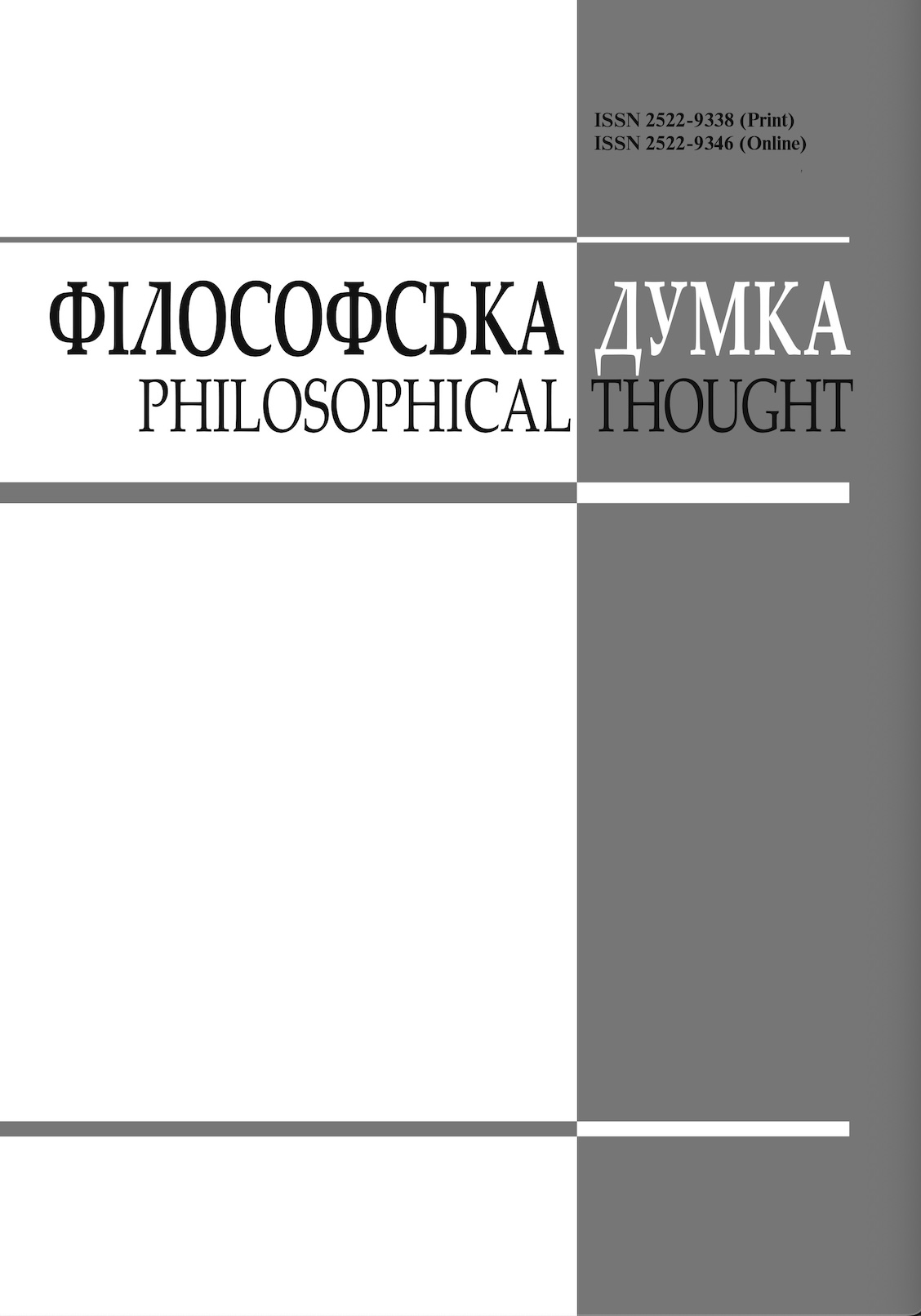EXPERIENCE OF BEING: ORIGIN, PARADIGMATIC POTENTIAL, WAYS AND MEANS OF CULTURAL RECEPTION
DOI:
https://doi.org/10.15407/fd2024.04.043Keywords:
experience of being, minimal phenomenal experience, being, absolute, perception, pure consciousnessAbstract
The article is devoted to the experience of being; it suggests that the experience of being is the basis of human subjectivity and is responsible for ensuring the connection between man and the universe. Intuitions born in the process of being experience are used by a person to solve existential problems. Being experience in its immediacy was revealed to man in the epoch of transition from primitive communal relations to class society. The discursive comprehension of the being experience undertaken by ancient philosophy led to the development of the concept of being.
Similarities in the descriptions of basis experience found in the texts of philosophers and religious mystics across diverse traditions, suggests the presence of a fundamental, invariant experience of being at the core of human spirituality. While interpreted differently in philosophical and religious contexts, this experience serves as the foundation for all conceptions of being, At the intersection of the intuitive experience of being and its discursive comprehension, the cultural category of being is formed.
The second part of the article is devoted to the analysis of the main mechanisms of being experience, which are responsible for the unfolding of the space of human activity and the experience of unity between man and the world. Particular attention is paid to the minimal phenomenal experience, and the possibility of identity between the minimal phenomenal experience and the being experience is considered. This idea is supported by Thomas Metzinger's research on minimal phenomenal experience (MPE).
Ultimately, it is proved that the experience of being is the experience of direct unity between the individual and being. This feature allows us to realise our identity with the world and participate in the self-actualisation of being.
References
Cattell, R. (1930). The subjective character of cognition and the pre-sensational development of perception. British Journal of Psychology, 14.
Hunt, H.T. (1995). On the nature of consciousness: cognitive, phenomenological, and transpersonal perspectives. New Haven: Yale University Press
Metzinger, T. (2024). The Elephant and the Blind: The Experience of Pure Consciousness: Philosophy, Science, and 500+ Experiential Reports. MIT Press.
https://doi.org/10.7551/mitpress/15196.001.0001
Parmenides of Elea. (1984). Fragments: A Text and Translation with an Introduction. University of Toronto Press.
Spearman, C. (1923). The nature of intelligence and the principles of cognition. London: Macmillan.
Grof, S. (1997). The cosmic game: Explorations of the frontiers of human consciousness. SUNY.
Werner, H., Kaplan, B. (1963). Symbol formation. New York: Wiley.
Downloads
-
PDF (Українська)
Downloads: 90
Published
How to Cite
Issue
Section
License
Authors who publish with this journal agree to the following terms:
- Authors retain copyright and grant the journal right of first publication.
- Authors are able to enter into separate, additional contractual arrangements for the non-exclusive distribution of the journal's published version of the work (e.g., post it to an institutional repository or publish it in a book), with an acknowledgement of its initial publication in this journal.
- Authors are permitted and encouraged to post their work online (e.g., in institutional repositories or on their website) prior to and during the submission process, as it can lead to productive exchanges, as well as earlier and greater citation of published work (See The Effect of Open Access).


